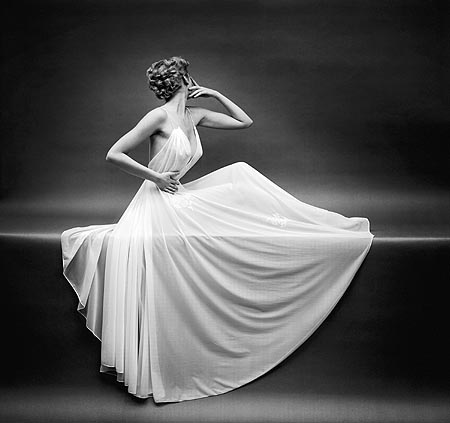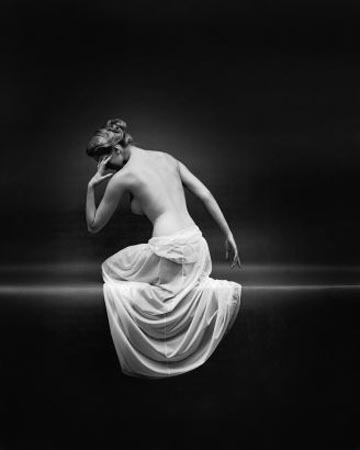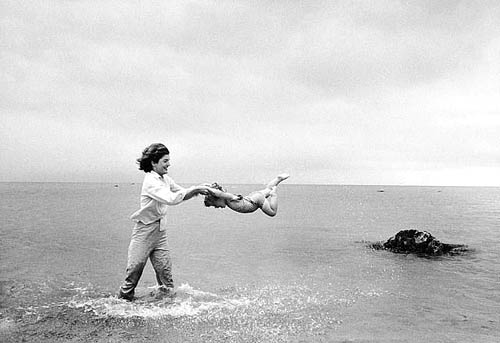MARK SHAW "VANITY FAIR" PHOTOGRAPHS
January 25, 2011 | Source: Monroe Gallery of Photography

As published in Hemispheres and Sky magazines
Mark Shaw worked as a top print advertising photographer until his untimely death in 1969 at the age of 47. Some of Mark Shaw's most beautiful work was shot for Vanity Fair's lingerie advertising campaign; fellow fashion and portrait photographer Richard Avedon contributed concurrently to this well-known, long-running campaign. This series of images was created over a ten-year period. It garnered yearly recognition by the prestigious Art Director's club. In his later years, Mark Shaw began filming commercials for television, which also won him several awards.

The chief model for the Vanity Fair campaign was Carmen Dell' Orefice. A few months shy of her fourteenth birthday in the summer of 1945, Carmen Dell' Orefice, an introverted, skinny kid of Italian-Hungarian extraction (father a musician, mother a dancer) walked over to the Vogue studios at 480 Lexington Avenue in Manhattan and reported for work. Her first pictures - by the underrated Clifford Coffin - show a serious, disconcerting beauty with an intense gaze, a dancer's elongated lines and a swimmer's athletic shoulders, and on the strength of them Vogue offered her an exclusive $7.50 an hour contract.
Within weeks Carmen was working with the defining fashion photographers of the era: Cecil Beaton, who introduced her to Dali, Irving Penn, who dubbed her 'Little Carmen' and shot her as Snow White, Cinderella and Red Riding Hood, Erwin Blumenfeld who saluted her talents as a "great actress" and Horst P. Horst who rhapsodized over her "American beauty of another, antique age". The $7.50 an hour went dutifully home to her mother on Third Avenue. By 1947, 1947, Carmen got a raise to $10-$25 per hour; by 1953 $300.
Mark Shaw is perhaps best known for his photographs of Jacqueline and John F. Kennedy, which he shot originally for LIFE magazine and later as the Kennedys' "unofficial" family photographer. He developed a strong friendship with JFK and Jackie and regularly visited the White House during their time there. After JFK's death, a selection of Mark Shaw's photographs was published as a best selling book, The John F. Kennedy's: A Family Album. The book was re-published in 2000 by Rizzoli with new additions.

Jacqueline Kennedy swinging Caroline in surf, Hyannis Port, 1959
After his death, most of his work was hastily put into storage. All but a small number of photographs remained unseen for almost 30 years. In 1999, his only child, David Shaw, and David's wife, Juliet Cuming, moved the collection to Vermont. It is housed in an off the grid straw bale structure which they built themselves following sustainable principles. The building is powered by wind and solar energy. Monroe Gallery exhibited a major retrospective of Shaw's photographs in 2008, and is pleased to represnt the Mark Shaw Photographic Archive.
